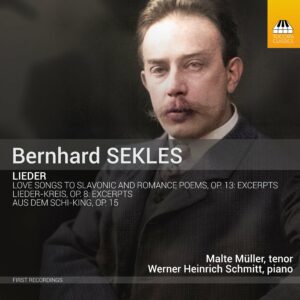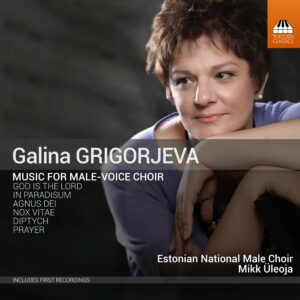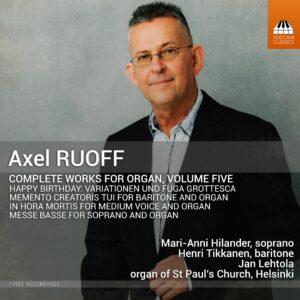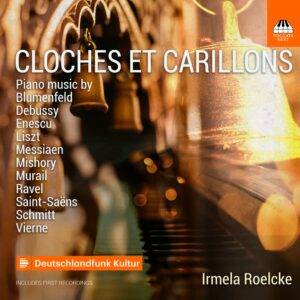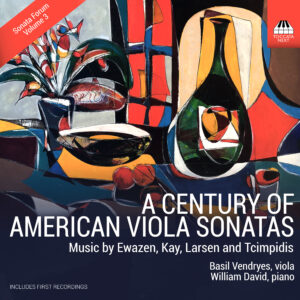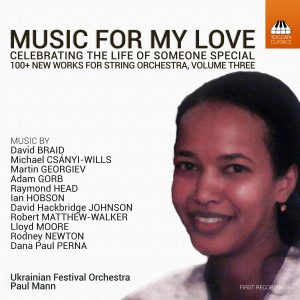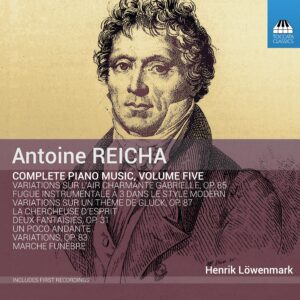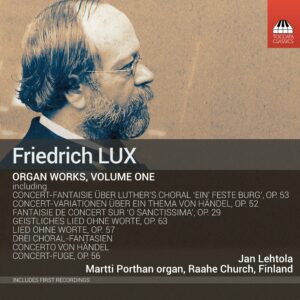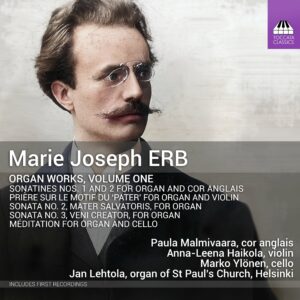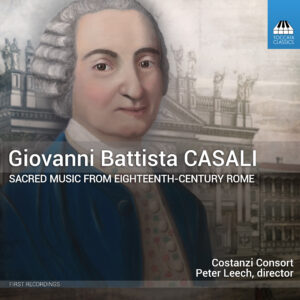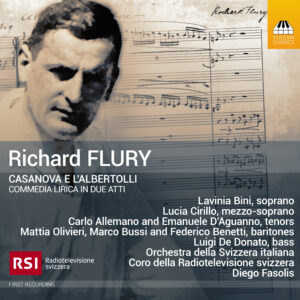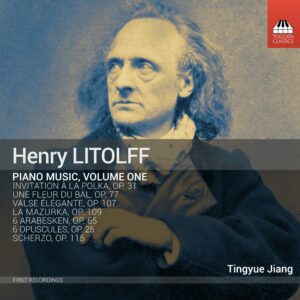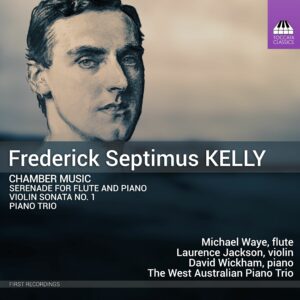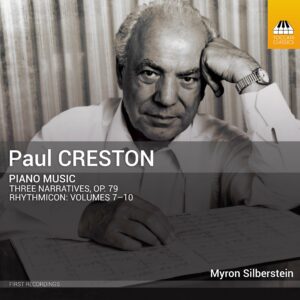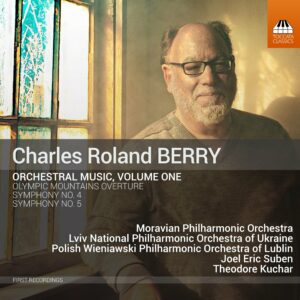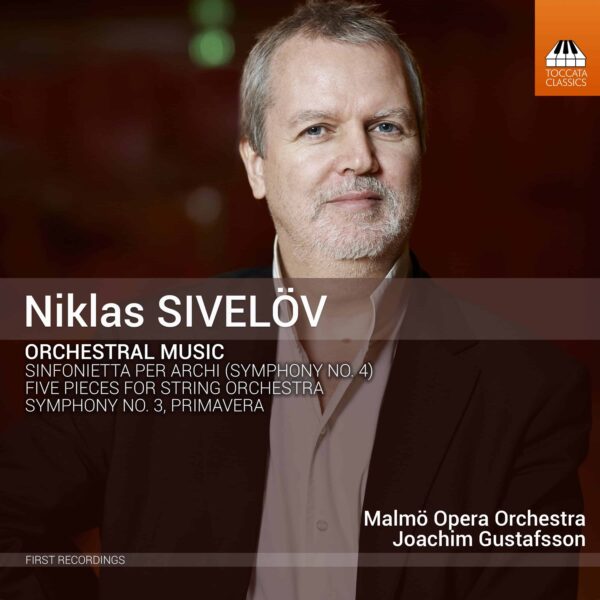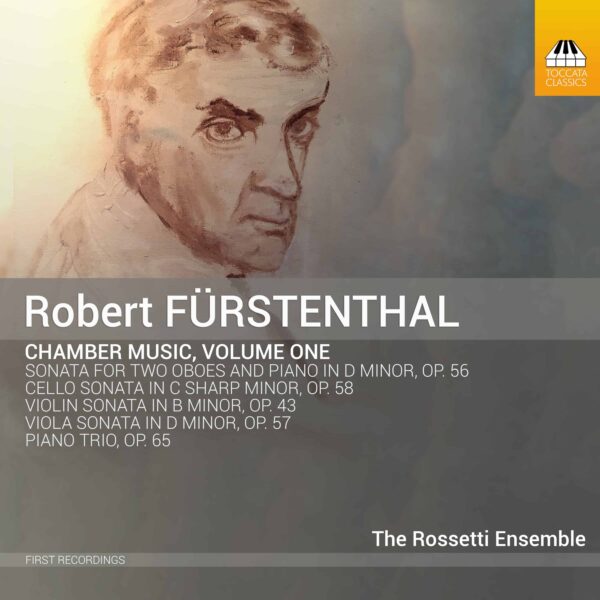Search Results for "Space Wolf: The First Omnibus mp3 torrent" – Page 3
Bernhard Sekles: Lieder – Aus dem Schi-King and other Songs
Bernhard Sekles (1872–1934) was one of the leading figures in German music in the first decades of the twentieth century, prominent as composer, educator and administrator. In 1928, as director of the Hoch Conservatorium in Frankfurt, he established the first academic programme in jazz studies, an act of courage and conviction that unleashed furious attacks from the Nazi press. His own late-Romantic music, banned during the Third Reich, has been virtually forgotten, although he composed in all major genres, including opera, orchestral works and chamber music. This first-ever album of his Lieder includes a major song-cycle, the freewheeling Aus dem Schi-King, based on ancient Chinese poetry in adaptations by Friedrich Rückert, its moods ranging from the heroic to the comic.
Malte Müller, tenor
Werner Heinrich Schmitt, piano
Mit Deutschem Kommentar
Galina Grigorjeva: Music for Male-Voice Choir
The choral music of Galina Grigorjeva – born in Simferopol in Ukraine in 1962 and based in Tallinn, in Estonia, since 1994 – is deeply rooted in the traditions of the Orthodox Church and in ancient Russian and Slavonic folklore. Although clearly by a contemporary composer, her works have a timeless, even hypnotic, quality that seems to reach back through the ages. She has been working with the Estonian National Male Choir – one of the finest in a country full of choirs – for some years now, and some of the works here were composed or arranged specifically for this recording.
Theodor Sink, cello (8, 9)
Aleksandr Mihhailov, bass (3)
Aleksander Arder, tenor (7)
Margus Vellmann, tenor (7, 9)
Grigori Rutškin, tenor (9)
Estonian National Male Choir
Mikk Üleoja, conductor
Axel Ruoff: Complete Works for Organ, Volume Five
This final instalment of the organ compositions of Axel Ruoff (born in Stuttgart in 1957) presents two starkly contrasted sides of his musical personality: three of them, for voice and organ, are concerned with the spiritual – two even addressing head-on the issue of death itself – and are thus solemn and hieratic, whereas the concluding work is a whimsical, tongue-in-cheek set of variations on ‘Happy Birthday’, written as a present for Ruoff’s publisher on his 80th birthday.
Mari-Anni Hilander, soprano
Henri Tikkanen, baritone
Jan Lehtola, organ of the St. Paul’s Church, Helsinki
Martin Skafte: 24 Preludes for Piano
The fascination of the Swedish composer Martin Skafte (b. 1980) with the 24 Préludes of Claude Debussy inspired 24 preludes from Skafte himself, with occasional oblique references to Debussy’s originals but using Skafte’s own musical language. Like Debussy, Skafte exploits the colours and sonorities of the piano but also he requires Lisztian virtuosity and pulls in a range of further influences, among them ragtime and Ligeti – and a sly sense of humour can often be detected in the background.
Jonas Olsson, piano
Cloches et Carillons
The piano is perhaps better suited than any other instrument to evoke the sound of bells – evening bells, bells of farewell and of joy, funereal bells, bells with spiritual overtones – and late-Romantic and twentieth-century French and Russian composers in particular have responded to the challenge of capturing those sonorities at the keyboard. This recital explores three centuries of pianistic tintinnabulation, and its ability to capture atmosphere and emotion.
Irmela Roelcke, piano
A Century of American Viola Sonatas
These five works – four sonatas and a sonatina – chronicle a century of American writing for the viola and are linked by a concern for directness of musical language. But they also reflect diversity in their origins and inspirations, the Ulysses Kay pieces being written by a pioneering African American, Libby Larsen’s by a successful female freelance composer, Eric Ewazen’s animated by a particularly American lyricism and energy, and the sonata by David Tcimpidis commemorating the ‘9/11’ terrorist attack on the World Trade Center, which Tcimpidis heard unfolding.
Basil Vendryes, viola
William David, piano
MUSIC FOR MY LOVE: Volume Three
Celebrating the Life of Someone Special
100+ New Works for String Orchestra, Volume Three
When Yodit Tekle was diagnosed with stomach cancer in late 2014, her partner, Martin Anderson, who runs Toccata Classics, asked a few composer friends to write some music for strings to bring her comfort in her illness. As her life slipped away, he had the idea that she might be remembered in music and so he began to commission other pieces for string orchestra in her memory. To his surprise, almost everyone he asked generously agreed, and so the project snowballed: there are now over 100 composers who have written or agreed to write for it – in an undertaking that is probably unique in the history of music. This third volume presents eleven more pieces in an initiative which, in effect, transforms love into something you can hear.
(Learn more at musicformylove.org)
Ukrainian Festival Orchestra
Paul Mann
Antoine Reicha: Complete Piano Music, Volume Five
The piano music of the Czech-born composer Antoine Reicha (1770–1836) – friend of Haydn and Beethoven, teacher of Berlioz, Liszt and Franck – has only recently begun to be discovered. He was an important influence on composers of the next generation but until recent years his piano works remained almost completely unknown. Encompassing Baroque practices, as well as looking forward to the twentieth century, they are full of harmonic and other surprises that show this liveliest of musical minds at work. In this fifth volume of his survey of Reicha’s piano music Henrik Löwenmark demonstrates the breadth of Reicha’s quixotic imagination, with three variation sets and a number of smaller character pieces.
Henrik Löwenmark piano
Friedrich Lux: Complete Works for Organ, Volume One
Friedrich Lux (1820–95) was one of the breed of musicians who bound together musical life in nineteenth-century Germany: though he worked away from the major cities, as conductor, teacher, organist, organiser and composer, he was an indispensable element of the communities in which he worked. His large body of organ music, as good as unknown before now, brings together elements of the musical language of Bach, Mendelssohn and Schumann, in works that range from the intimate to the grandiose
Jan Lehtola, Martti Porthan organ, Raahe Church, Finland
Marie Joseph Erb: Organ Works, Volume One
The enormously prolific Marie Joseph Erb (1858–1944) has somehow escaped the attention of posterity, although the quality of his music would seem to be on a par with contemporary organist-composers whose works are far better known. Erb’s long life – he heard Berlioz conduct in 1863 and was still composing in 1944 – was focused on Strasbourg, where he was active as pianist, organist and professor, though he had studied in Paris, with Fauré, Gigout, Saint-Saëns and Widor, and later with Liszt in Weimar. This first album devoted to his organ music in almost 30 years sandwiches four lyrical chamber works between two towering sonatas.
Jan Lehtola, organ of St Paul’s Church, Helsinki
Paula Malmivaara, cor anglais (4–6, 8–10)
Marko Ylönen, cello (7)
Anna-Leena Haikola, violin (11)
Giovanni Battista Casali: Sacred Music from Eighteenth-Century Rome
The history of music-making in Rome tends to focus on Renaissance polyphony, with an occasional nod to the Baroque thereafter. But thanks to composers like Giovanni Battista Casali (1715–92), choral music continued to flourish in Roman churches and other religious establishments in the eighteenth century, too, until Napoleon’s occupation broke many of its traditions. Casali’s music, though, is as good as unknown, and this pioneering recording reveals a composer at home in the galant style – with a surprising fondness for the occasional dissonance.
Costanzi Consort
Peter Leech, director
Richard Flury: Casanova e l’Albertolli, Commedia Lirica in Due Atti
Two traditions coalesce in Casanova e l’Albertolli (1937), the third of the four operas by the Swiss late-Romantic composer Richard Flury (1896–1967): Italian bel canto and the Swiss Festspiel – high art and popular culture. Styled a ‘Commedia lirica’, it invests the comic intrigue onstage with sweeping melodies of Puccinian richness, combining them with choruses based on Ticino folksong – it even has a yodelling chorus – in an engaging hybrid that deserves to be far better known. At the end, of course, evil is banished and love rewarded, but the entire score is dappled with happy inspirations that will bring a smile to the listener’s lips.
Carlo Allemano, tenor
Lavinia Bini, soprano
Mattia Olivieri, baritone
Marco Bussi, baritone
Lucia Cirillo, mezzo-soprano
Luigi De Donato, basso buffo
Federico Benetti, baritone
Emanuele D’Aguanno, tenor
Coro della Radiotelevisione Svizzera
Orchestra della Svizzera Italiana
Diego Fasolis, conductor
Henry Litolff: Piano Music, Volume One
The British-born Henry Litolff (1818–91) maintains a toehold on the repertoire thanks to the enduring popularity of the Scherzo of his Concerto symphonique No. 4 for piano and orchestra. Litolff’s substantial output of music for solo piano – mostly virtuoso salon miniatures – has entirely slipped from sight, even though in his prime as composer and pianist he was often compared with Liszt, a personal friend. This first album devoted to Litolff’s piano music reveals a fondness for atmospheric character pieces and vigorous dances, not least the polka, mazurka and waltz.
Tingyue Jiang, piano
Frederick Septimus Kelly: Chamber Music
Frederick Septimus Kelly, born in Sydney in 1881, was on the way to becoming one of Australia’s most important early composers when he was killed during the Battle of the Somme in 1916. The three works recorded here – for the first time – underline just how grievous was that loss, not only for Australia but for the musical world more generally. Kelly’s D minor Violin Sonata is an astonishingly assured work for a twenty-year-old student composer; his Serenade for flute and piano exudes good-natured charm; and the two surviving movements of his Piano Trio – which have a Brahmsian intensity – suggest that he would have been one of the major composers of the twentieth century.
Laurence Jackson, piano
Michael Waye, flute
David Wickham, piano
The West Australian Piano Trio
Paul Creston: Piano Music
For some decades in the middle of the twentieth century, Paul Creston (1906–85) was one of the most frequently performed of American composers, though his music has sunk from prominence in recent years. He was himself a fearsome pianist, and his Three Narratives are Lisztian concert essays that require freewheeling virtuosity. Rhythmicon is a ten-volume collection of 123 brief studies that examine various aspects of rhythm. Their difficulty grows as the series progresses, reaching its zenith in Volumes 7–10, where Creston presents 25 studies that range in mood from serious to light-hearted, from hymn-like introspection and calm to jagged, Bartokian energy.
Myron Silbertstein, piano
Charles Roland Berry: Orchestral Music, Volume One
Charles Roland Berry, born in Boston, Mass., in 1957, studied in California with Peter Racine Fricker and Paul Creston before supporting himself in a variety of jobs in the music world. As a composer, he believes in writing music that audiences might like to hear and musicians enjoy playing; as a result, all three works here have the open-air, open-hearted, even naïve, quality of much American orchestral music, film scores in particular – the kind of ‘Big Country’ sound that one can hear in Copland, Grofe, Harris, Moross and other painters of the wide outdoors.
Moravian Philharmonic Orchestra (Track 1)
Lviv National Philharmonic Orchestra of Ukraine (Tracks 2–6)
Polish Wieniawski Philharmonic Orchestra of Lublin (Tracks 7–10)
Joel Eric Suben, conductor (Track 1)
Theodore Kuchar, conductor (Track 2–10)
Your Basket
Stay In the Know
JOIN THE TOCCATA NEWSLETTER
"*" indicates required fields
By visiting our site, you agree to our privacy policy regarding cookies, tracking statistics, etc.
